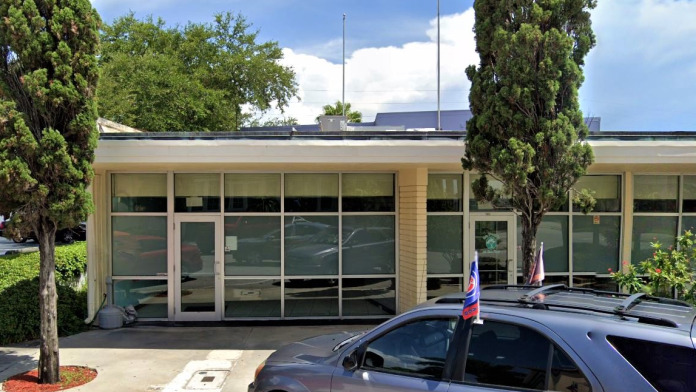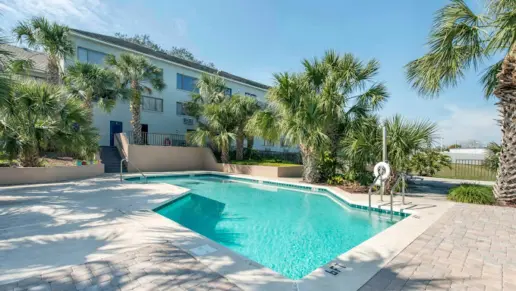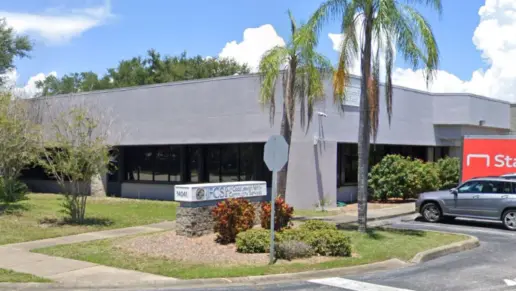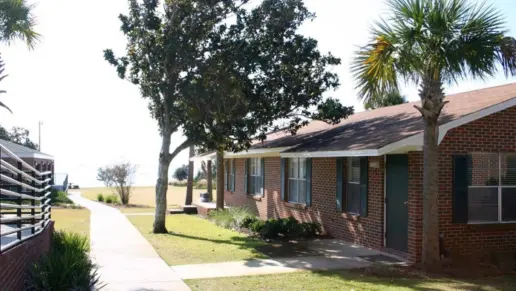About Dr. Paul’s at the Bay
Dr. Paul’s at the Bay in St. Pete Beach, Florida is part of the Spencer Recovery Network. They welcome adults battling addiction and co-occurring disorders. Many clients find the views of Boca Ciega Bay give them a soothing environment to focus on growth and healing. You’ll benefit from accessible payment options to get started on your journey. They accept almost all major insurance companies to ensure you find the care you need. If you don’t have insurance, they provide financing options, treatment scholarships, and payment arrangements based on eligibility.
As a Joint Commission accredited facility, they provide expert backed and personalized care. After a thorough assessment you receive a customized treatment plan curated to meet your unique needs. Private and group counseling and addiction education along with relapse prevention and life skills training are available. They also provide nutritional coaching and recreation.
What stands out most to me is their extended care program. Stepping down from residential rehab to a less structured environment can come with some hurdles. This specialized program helps you transition smoothly as you learn to apply new skills in daily life. Along with ongoing therapy you can access sober living accountability groups and relapse prevention workshops. They also have vocational training and internships along with community integration. These activities can help you rebuild your life while strengthening your support network.
Another standout feature is their program structure. Although a minimum of 28 days is recommended, they can accommodate any length of stay. I think this is a helpful approach because recovery is different for everyone. You can move at your own pace while knowing that they’re there to offer support and guidance.
Latest Reviews
Rehab Score
Gallery

Location
Other Forms of Payment
Self-pay involves paying for treatment out of your own pocket. You can use savings or credit, get a personal loan, or receive help from family and friends to fund your treatment. If you don't have insurance or your insurance plan doesn't cover a specific program, self-pay can help ensure you still get the care you need.
Private insurance refers to any kind of healthcare coverage that isn't from the state or federal government. This includes individual and family plans offered by an employer or purchased from the Insurance Marketplace. Every plan will have different requirements and out of pocket costs so be sure to get the full details before you start treatment.
Addiction Treatments
Levels of Care
Treatments
The goal of treatment for alcoholism is abstinence. Those with poor social support, poor motivation, or psychiatric disorders tend to relapse within a few years of treatment. For these people, success is measured by longer periods of abstinence, reduced use of alcohol, better health, and improved social functioning. Recovery and Maintenance are usually based on 12 step programs and AA meetings.
Drug rehab in Florida provides quality treatment to help individuals overcome dependency related to a wide range of addictive substances. Programs address both the physical and mental aspects of addiction in order to help you make a full recovery.
Opioid rehabs specialize in supporting those recovering from opioid addiction. They treat those suffering from addiction to illegal opioids like heroin, as well as prescription drugs like oxycodone. These centers typically combine both physical as well as mental and emotional support to help stop addiction. Physical support often includes medical detox and subsequent medical support (including medication), and mental support includes in-depth therapy to address the underlying causes of addiction.
Substance rehabs focus on helping individuals recover from substance abuse, including alcohol and drug addiction (both illegal and prescription drugs). They often include the opportunity to engage in both individual as well as group therapy.
Programs


Clinical Services
Whether a marriage or other committed relationship, an intimate partnership is one of the most important aspects of a person's life. Drug and alcohol addiction affects both members of a couple in deep and meaningful ways, as does rehab and recovery. Couples therapy and other couples-focused treatment programs are significant parts of exploring triggers of addiction, as well as learning how to build healthy patterns to support ongoing sobriety.
Research clearly demonstrates that recovery is far more successful and sustainable when loved ones like family members participate in rehab and substance abuse treatment. Genetic factors may be at play when it comes to drug and alcohol addiction, as well as mental health issues. Family dynamics often play a critical role in addiction triggers, and if properly educated, family members can be a strong source of support when it comes to rehabilitation.
Group therapy is any therapeutic work that happens in a group (not one-on-one). There are a number of different group therapy modalities, including support groups, experiential therapy, psycho-education, and more. Group therapy involves treatment as well as processing interaction between group members.
In individual therapy, a patient meets one-on-one with a trained psychologist or counselor. Therapy is a pivotal part of effective substance abuse treatment, as it often covers root causes of addiction, including challenges faced by the patient in their social, family, and work/school life.
Life skills trainings involve all the skills a person must have in order to function successfully in the world. These include time management, career guidance, money management, and effective communication. Truly successful addiction recovery is based on the ability to not only live substance-free, but to thrive. Life skills teaches the practical necessities of functioning in society, which sets clients up for success in life, and therefore sobriety.
Contact Information
140 Corey Ave
St. Pete Beach, FL 33706


